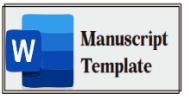PERMASALAHAN BANK ISLAM DAN BANK SENTRAL
Abstract
The theme of the article is the banks and financial institutions. Islamic banks have experienced significant new developments which are an option for Muslims not to practice Riba anymore. This is of course the desire of all Muslim individuals who want to apply Islamic law that facilitates transactions, production and service. In this case Islamic banks have privileges that are not owned by other banks but faced with several obstacles and problems in conducting their activities in the field. The author will discuss this issue to obtain a viable solution in order to serve as a consideration for decision makers in Islamic banking in the constraints encountered during contact with the central bank. After making observations it can be seen that the government's support for these Islamic banks is virtually nonexistent in investment as well as financing which are the problems and challenges faced by Islamic banks. Coupled with the scarcity of experts in the science of fiqh mu'amalah associated with the operating system of Islamic banks and the problems encountered when conducting activities with customers and relationships with conventional banks and central banks. In addition, most fiqh experts do not have sufficient knowledge in modern finance as well as various forms of transactions and activities. The pattern of supervision on Islamic banks is still in the form of surveillance conducted by the West both in the form of juridical supervision and in the field of finance which greatly narrow the space for the Islamic banks themselves by it self Islamic banks but are in the position of conventional banks. Coupled with the newcomers who are a counter. This discussion recommends that the central bank have special treatment of Islamic banks and let Islamic banks reconsider the existing investment banking patterns and accounts of the central banks associated with the Statutory Reserve (Statutory Reserves/Legal Reserves). Islamic banks have much less reserves than conventional banks. The research to find the solution of this problem should be developed by the Islamic financial review center to improve the performance and performance of Islamic banks to face globalization and the global financial crisis in particular.
Keywords
Full Text:
PDF (Bahasa Indonesia)References
Antonio, M. Syafi’i. (2004). Bank Syariah, dari Teori ke Praktek. Jakarta: Pustaka Firdaus.
Ar-Rumani, Zaid. (2001). An-Nawafiz al-Iqtishadiah. Riyad: Dar Thariq.
Hailan, Rizqullah. (1998). Mudaqaddamat al-Iqtishadiyah. Dimasq: Dar al-Hisad.
Hamdi Abdul Azim Ghasil. (1997). Al-Amwal fi Misr, wa al-Alam. Kairo: Makabah az-Zahra’ as-Syarq.
Kamil, S. Salih. (1977). Tatawur al-Amal fi Masharif al-Islami Masyakil wa Afaq. Kairo: Bank al-Islami wa Tanmiyah.
Meera, A. K. M. (2010). Perampok Bangsa-Bangsa. Bandung: Miza.
Muhammad. (1993). As-Sayid Abdussalam al-Amn al-Ghizai lil Wathan al-Arabi. Kuwait: Mathabi’ ar-Risalah.
Nizam, S. H. (1991). Al-Murabi al-Alami. Dimasq: Dar al-Mustaqbal.
Siddiqi, M. Nejatullah. (1983). Bank Islam. Jakarta: Penerbit Pustaka.
Syaikhun, Muhammad. (2002). Al-Masharif al-Islamiyah. Oman: Dar al-Wail.
DOI: http://dx.doi.org/10.15548/al-masraf.v2i2.110
Refbacks
- There are currently no refbacks.

This work is licensed under a Creative Commons Attribution-NonCommercial-ShareAlike 4.0 International License.
View My Stats

